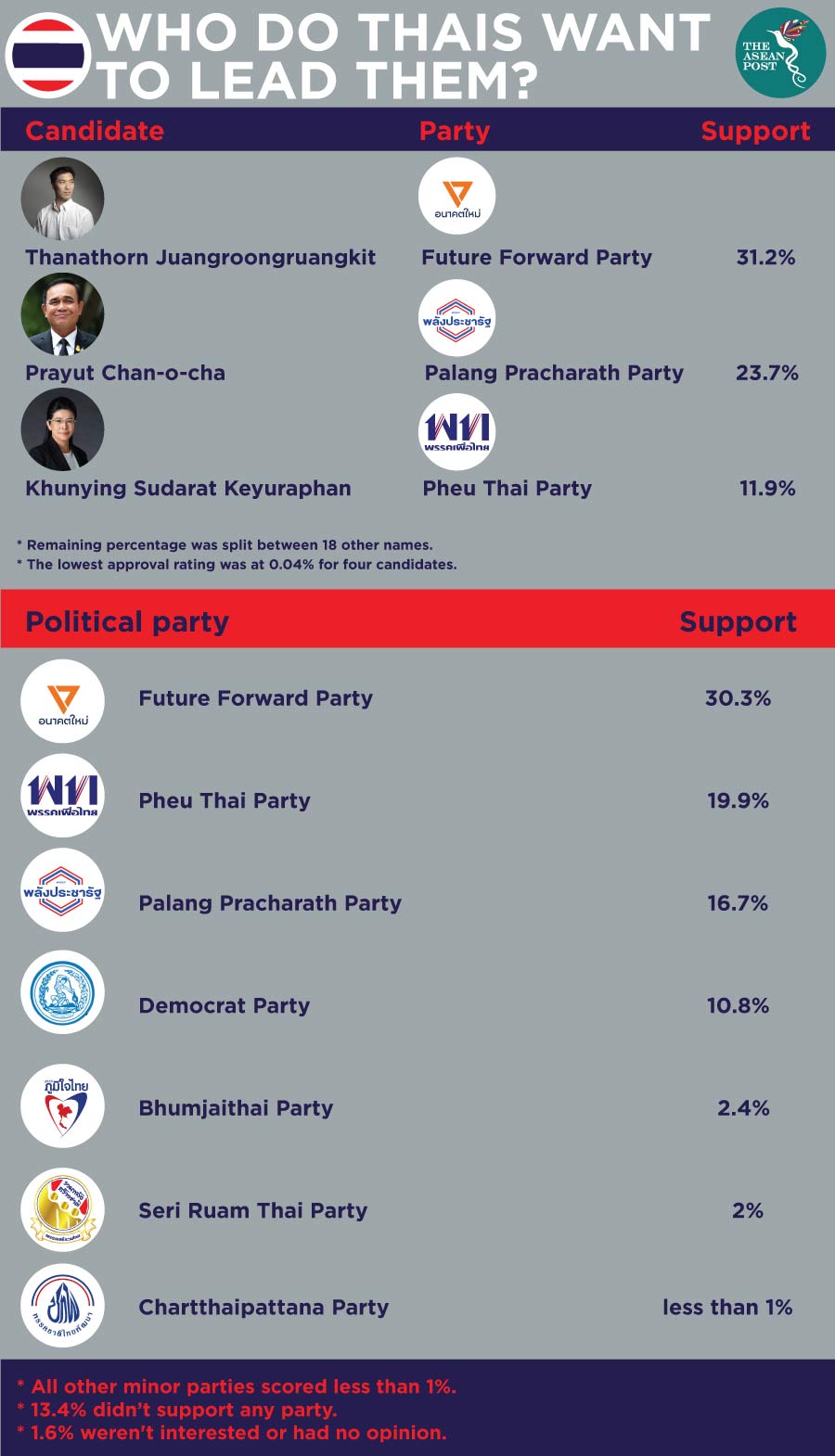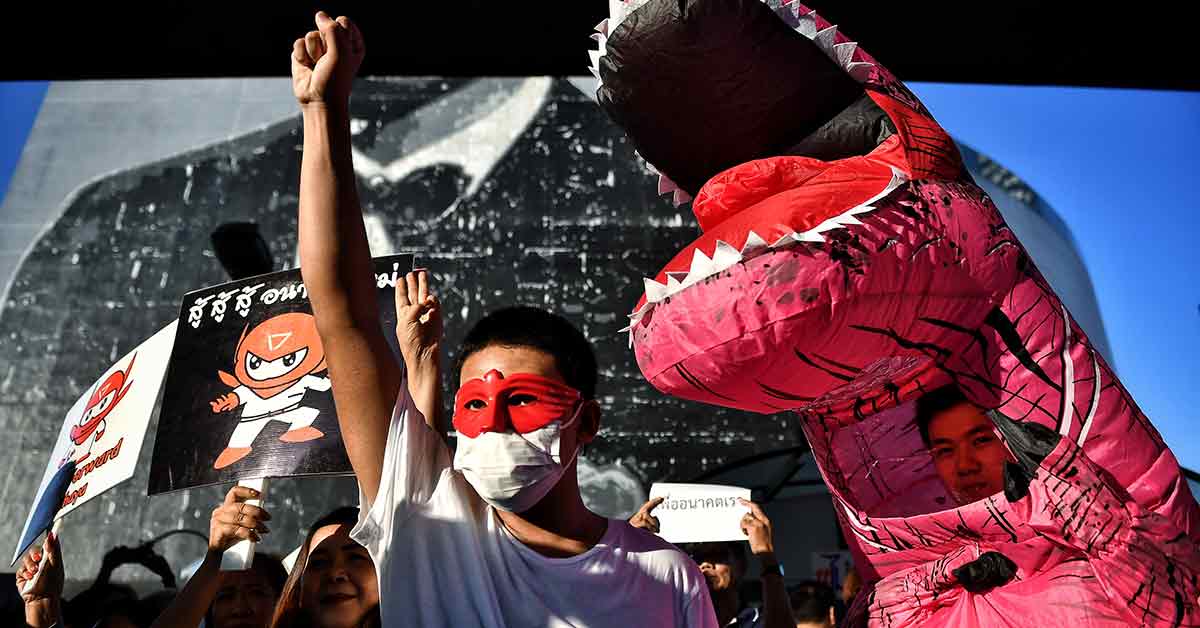Last week, news reports in Thailand revealed that as many as 10,000 anti-government opponents had registered for the “Run Against Dictatorship” event organised by the Future Forward Party. The event is set to take place this Sunday in the country’s capital city, Bangkok.
Thai pro-government supporters have decided that they would stage a rival walk on the same day. The rival event is called “Walk to Cheer Uncle” which is a reference to Thailand Prime Minister Prayut Chan-o-cha’s nickname: Uncle Tu. According to reports, about 2,500 people have already registered to take part.
Opponents of the government say it manipulated the election held in March last year which consequently extend the rule of junta leader, Prayut. They now fear that the authorities will move to dissolve the popular Future Forward Party.
“We want to show the government the discontent that citizens have with the administration,” said university student Tanawat Wongchai, who is helping to organise the anti-government event.
The two events will take place approximately 11 kilometres away from each other and at the same time.
While the two concurrent events “point to the rising political temperature in Thailand”, there is no immediate signs of a return to violent street protests. JK Associates Principal Consultant and security expert, Khen Han Ming agreed that, looking at how the two rallies are organised; a walk / run in support of respective sides “seems healthy”.
“Thais love sports, so it looks like these events are going to be more ‘festive’ than ‘anger-fuelled’,” he told The ASEAN Post.
What Thanathorn and his supporters refer to as a “test run” earlier in December saw thousands of people gathering on the skywalk linking the National Stadium and Siam Bangkok Mass Transit System (BTS) stations, chanting “Prayut get out” at an anti-military demonstration. According to reports, that rally was largely peaceful despite a minor skirmish between some protesters and the police in the afternoon.

Exercise caution
Khen, however, said that the Future Forward Party and their supporters needed to exercise caution as things could go awry in a blink of an eye. He said it was important to take into consideration the possibility of provocations and sudden crackdowns during the run.
“We need to acknowledge and recognise the risk that there is a possibility that the events can get out of control,” he said, adding that he doubted the Future Forward Party would want anything like that to happen.
“I don't think the Future Forward Party is looking forward to having massive social unrest because this will be counterproductive to achieving their goals.”
If Thailand’s history is anything to go by, exercising caution should be at the forefront of the Future Forward Party’s mind.
On 6 October 1976, Thailand marked its history books with black ink after witnessing the Thammasat University massacre, an attack by state forces and far-right paramilitaries on student protesters on the campus of Thammasat University and the adjacent Sanam Luang Square in Bangkok. Prior to the massacre, 4,000 to 5,000 students from various universities demonstrated for more than a week against the return of former military dictator, Thanom Kittikachorn to Thailand from Singapore.
To this day, the number of casualties is disputed by the Thai government and survivors of the massacre. According to the government, 46 died in the killings, with 167 wounded and 3,000 arrested. Many survivors claim the death toll was well over 100.
The attackers had accused the students of sympathising with left-leaning revolutions sweeping through the region at the time. From 1973 to 1976 there was growing unrest and instability, as well as the fear of communism from neighbouring countries spreading to Thailand and threatening the interests of the monarchy and the military.
The bloody massacre is particularly pertinent today, for the Future Forward Party and for its leader Thanathorn. On 11 October, army general Apirat Kongsompong accused some politicians, academics and "old communist elements" of using "hybrid warfare" to undermine the country and the high institution.
He slammed a politician who met Hong Kong student activist, Joshua Wong after the Chinese embassy issued a statement accusing a Thai politician of contacting a group involved in the ongoing protests in Hong Kong. Apirat did not name the politician but showed a picture of the Hong Kong activist and another person whose picture was removed. However, on Wong's Facebook account, the picture shows Wong with none other than Thanathorn himself.
The Future Forward Party’s upcoming run is largely targeted at what supporters deem an illegitimate government set in place by the former military junta through a rigged election. In essence, it’s as much an anti-military run as it is an anti-government one.
If the Thai military is already setting its sights on Thanathorn and the Future Forward Party, then any untoward incident – however small – during the run on Sunday could give them a reason to act. Thanathorn and the Future Forward Party would be well advised to ensure that this doesn’t happen; not only to serve their political interests but also for the safety of all Thais in the nation’s capital.
Related articles:
